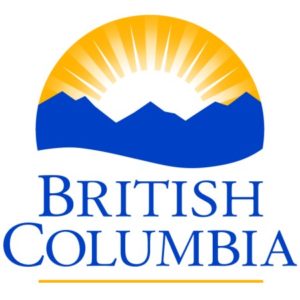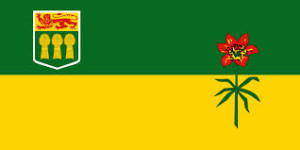 A couple of interesting news bits this week.Thought I would offer a quick rundown on both and what they might mean in the region.
A couple of interesting news bits this week.Thought I would offer a quick rundown on both and what they might mean in the region.
B.C. Lowers Mark-Ups
Last Friday the B.C. government moved to reduce the mark-ups on craft beer (press release here). As of July 3, the mark-up rate for small brewers will drop 25%, according to the government. It actually is more complicated than that as B.C. for a few years has had a graduated system, where the mark-up slowly increases as production increases. The new system will start at the lowest rate of 40 cents/litre for breweries under 15,000 hl, gradually move up until 350,000 hl when the highest rate of $1.08/litre kicks in. In a phone call to the Ministry, it was confirmed to me that this rate will apply to all breweries, regardless of where the beer is produced.
For comparison, Alberta’s new mark-up rate starts at 10 cents/litre (up to 10,000 hl), moves to 30 cents, then 55 cents and finishes off at $1.25 at 200,000 hl. Alberta’s system is also graduated. The lower rates are applied only to beer produced in B.C., Alberta and Saskatchewan (read here for background).
I find the rate comparison interesting. There is no question Alberta has one of the deepest discounts for local(ish) beer production in the country, while the high ends (and volume measures) are fairly comparable.
Then there is the issue of who the lower mark-ups apply to. On the surface, B.C.’s policy seems fairer, turning a blind eye to geography. Except, as things go, it is not that simple. B.C. has a policy of preferential treatment for B.C. breweries when it comes to shelf space at B.C. Liquor stores. It is very hard for a non-B.C. brewery to get permission to enter the B.C. market. In other words, B.C. applies its protectionism farther up the decision chain – they simply don’t allow breweries to enter the market. In a way that makes the equal application of the mark-up a bit of a game of Three Card Monty. To be clear, I am not saying this is a bad thing, I am just pointing out what they do.
I searched the B.C. Liquor product catalogue this week and found a single Alberta brewery on the list: Big Rock. In fact the number of independent Canadian breweries was pretty thin and tended toward larger players like Great Western, Steam Whistle and St. Ambroise. There were, however, a LOT of B.C. breweries on the list. I do appreciate B.C. has a selection of private liquor stores that can import beer off-list, so there may be others present in dribs and drabs (I am pretty certain Yukon does this), but the results are striking.
There is more than one way to be protectionist.
I don’t raise this to re-ignite the debate about Alberta’s mark-up policy, but I do feel it is important to recognize that a single policy cannot be evaluated in isolation of the entire system. Which province is more open to imports, Alberta or B.C.? I will let you answer the question.
Saskatchewan Moves Toward Privatization
 The recently re-elected Wall government introduced legislation this week to set up their promised plan to privatize the majority of its SLGA liquor stores. In the spring election they promised to privatize 40 of the province’s 75 liquor stores and expand the number of private retailers. Many anticipate this is a first step to a full-scale retail privatization. I have written about the complexities of privatization before (here and here, for example), so won’t repeat myself. All I will say is that it is one of those issues that seems simple on the surface, but ends up being quite a mixed bag in the end.
The recently re-elected Wall government introduced legislation this week to set up their promised plan to privatize the majority of its SLGA liquor stores. In the spring election they promised to privatize 40 of the province’s 75 liquor stores and expand the number of private retailers. Many anticipate this is a first step to a full-scale retail privatization. I have written about the complexities of privatization before (here and here, for example), so won’t repeat myself. All I will say is that it is one of those issues that seems simple on the surface, but ends up being quite a mixed bag in the end.
One of the big questions that remains to be answered is whether partial privatization will be accompanied by an opening of their borders. Will they follow Alberta’s path of permitting any brewery to import into the province, or will they maintain their current tight restrictions around importation? The decision to that question will profoundly affect the direction craft beer takes in Saskatchewan in the coming years.
The last couple of years have been good for Saskatchewan craft beer fans, as they have had a mini-brewery boom and it really feels like the province is about to turn a corner on creating a local craft beer culture. It is worth wondering what effect throwing the doors open will have on those up and coming new breweries and others to come in the near future?
In both B.C. and Saskatchewan we see how small policy changes can have a big impact on the shape of the beer industry. I will try to keep you apprised of how both of these policies roll out.


May 27, 2016 at 3:12 PM
Thanks for your page. I use it as reference often.
My comment is not specific to the Saskatchewan privatization, but is sort of.
There is a pub in Unity, Saskatchewan, that has a microbrewery on premises, and serves their beer on tap. http://www.bluezon2nd.com/
It might be worthy of inclusion on your list of breweries? Or, maybe you could compile a list of brewpubs independent of breweries?
Just some information and a thought.